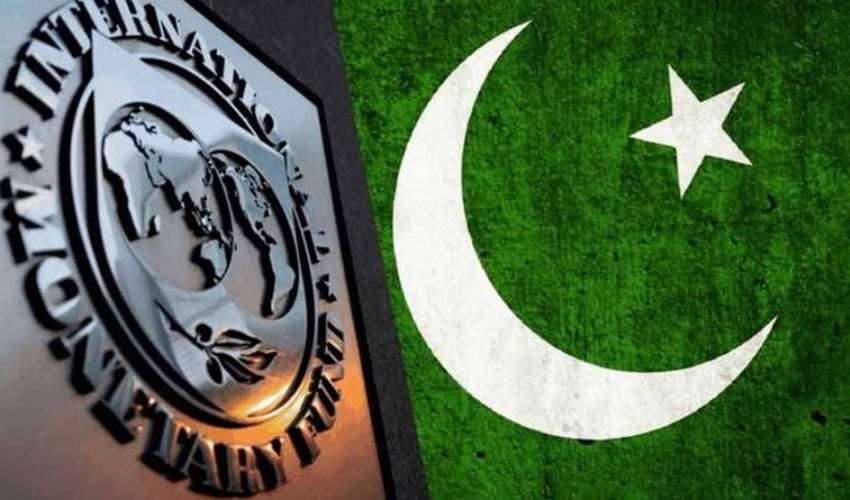
|
Getting your Trinity Audio player ready...
|
In Pakistan, it’s rare for a day to pass without news of the International Monetary Fund (IMF) and its influence on the country’s economic policies. This relationship has evolved into a crucial part of the nation’s financial management. The IMF’s role, however, raises two critical questions: How is it that a body of international bureaucrats is in a position to dictate Pakistan’s economic policies? And, more importantly, are Pakistan’s national interests being served by the IMF’s policy recommendations?
This article explores the history, influence, and consequences of the IMF’s interventions in Pakistan, evaluating whether these policies genuinely benefit the country or merely serve the strategic and economic interests of the West, especially the United States.
The Historical Context: How the IMF Came to Dominate Global Finance
The Post-War Emergence of the IMF
The IMF, established in 1944 alongside the World Bank, was initially created to stabilize the global economy after World War II. Its main goals were to promote international monetary cooperation, ensure balanced trade, and maintain financial stability. The IMF’s Bretton Woods system pegged currencies to the US dollar, which was convertible to gold, creating exchange rate stability. However, in 1971, the system collapsed after the US suspended the dollar’s convertibility into gold, marking a shift to floating exchange rates. Despite the system’s collapse, the IMF found new roles in the evolving economic landscape.
The IMF’s Role as a Global Credit Agency
After the collapse of the Bretton Woods system, the IMF found its new purpose in acting as a global credit-rating agency. In the 1970s, the IMF began offering loans to developing countries in crisis, often in exchange for the adoption of specific economic reforms. These reforms were designed to ensure that the country could repay its debts, but they were also aligned with Western neoliberal economic policies.
The IMF’s loans were crucial for securing additional funding from commercial lenders, as the IMF’s endorsement served as a stamp of approval. This arrangement solidified the IMF’s influence in the global financial system, particularly in developing nations like Pakistan.
IMF Influence on Pakistan’s Economy
The IMF and Pakistan’s Financial Struggles
Pakistan, like many developing countries, has frequently turned to the IMF for financial assistance. Over the years, the IMF has provided loans to Pakistan during times of economic crisis, but these loans have come with stringent conditions that require the country to adopt a set of economic reforms. While these loans have helped Pakistan avoid immediate financial collapse, the long-term effects of IMF-imposed policies have raised concerns.
Economic Reforms and Their Impact on Pakistan
The IMF’s loan agreements with Pakistan often come with demands for a variety of economic reforms, including the privatization of state-owned enterprises, deregulation of industries, and trade liberalization. While these reforms are intended to improve Pakistan’s economic outlook by fostering a more competitive and efficient market, they often have serious consequences for the local economy and population.
For instance, the IMF’s mandate for the privatization of state-owned enterprises often results in job losses and social unrest. Similarly, deregulation in sectors like energy can lead to price hikes that burden the country’s poor and middle class.
The Social Cost of IMF Policies
One of the most contentious aspects of the IMF’s involvement in Pakistan is the social cost of the policies it mandates. A prime example is the recent increase in electricity prices, which was a direct result of IMF conditions. As energy prices skyrocket, the most vulnerable segments of society are forced to spend a significant portion of their income just to keep the lights on. For many, this leaves little room for basic necessities like food and healthcare.
Moreover, these policies have contributed to a growing sense of economic inequality in Pakistan, as wealthier segments of the population are often able to weather the effects of IMF-mandated reforms, while the poor bear the brunt of austerity measures.
The Geopolitical Influence of the IMF: A Tool of Western Interests?
The IMF and US Strategic Interests
Critics argue that the IMF’s policies are not always designed with the best interests of the borrowing nations in mind. Instead, some believe that the IMF often acts as a tool of US foreign policy, advancing Washington’s geopolitical and economic interests around the world.
The United States, as the largest single shareholder in the IMF, wields significant influence over the Fund’s decisions. The US holds approximately 16.5% of the voting power, giving it veto power over major decisions that require an 85% majority. This disproportionate influence raises concerns that the IMF’s policies may align more with US strategic goals than with the needs of the countries it is supposed to help.
IMF’s Influence During the Cold War and Beyond
During the Cold War, the IMF was accused of favoring pro-Western regimes with more favorable lending terms, even when their economic performance was poor. For example, countries in Latin America that were aligned with US interests often received IMF support, despite economic mismanagement.
In the post-9/11 era, the IMF’s interventions have often coincided with US foreign policy objectives. Pakistan, for instance, received significant financial support from the IMF during times when it was a key ally in the US-led war on terror. This raises questions about whether IMF loans are being used to advance US foreign policy, rather than to address the economic needs of the borrowing country.
Do IMF Policies Serve Pakistan’s Interests?
The Core Objective: Servicing Debt
The primary goal of the IMF’s economic reforms is to ensure that borrowing countries can service their debts. However, critics argue that these policies prioritize the interests of international creditors over the needs of the local population. The IMF’s focus on reducing fiscal deficits and liberalizing trade often comes at the expense of social welfare programs, healthcare, and education. This has led to a situation where the government’s ability to service its debt takes precedence over the well-being of its citizens.
Sovereignty and National Interests
Another significant concern with IMF-imposed policies is the erosion of national sovereignty. Pakistan’s government, which was democratically elected by its people, is often forced to accept directives from international bureaucrats in Washington, DC. These directives can undermine Pakistan’s ability to make independent decisions regarding its economic future, as it becomes increasingly beholden to external forces.
The Debt Trap and Its Long-Term Consequences
Pakistan’s growing national debt has led to a situation where it is virtually impossible to repay what it owes. The IMF’s loans, while providing short-term relief, often contribute to the accumulation of more debt. This creates a cycle of dependency, where Pakistan continually needs to turn to the IMF for financial assistance. The lack of a sustainable debt repayment plan has led to concerns about Pakistan’s long-term financial stability.
Conclusion: Is the IMF Helping or Harming Pakistan?
In conclusion, the IMF’s policies in Pakistan have both positive and negative aspects. While the IMF’s loans have provided much-needed financial assistance during times of crisis, the economic reforms mandated by the Fund have often come at a significant social cost. These reforms have disproportionately affected the poor and vulnerable segments of society, while benefiting multinational corporations and foreign creditors.
Moreover, the IMF’s alignment with US geopolitical interests has raised questions about the true motives behind its interventions. While the IMF may claim to be helping Pakistan, it is clear that the Fund’s policies often serve the interests of powerful Western nations rather than the people of Pakistan.
As Pakistan continues to grapple with its economic challenges, it will need to carefully consider the long-term impact of IMF policies and whether these reforms are truly in the nation’s best interest. For now, it remains uncertain whether the IMF’s involvement will lead to lasting economic stability or whether it will entrench Pakistan in a cycle of debt and dependency.
FAQs
1. What is the IMF’s role in Pakistan’s economy?
The IMF provides financial assistance to Pakistan during times of economic crisis, but it often requires the implementation of economic reforms in exchange for loans. These reforms are intended to improve Pakistan’s ability to repay its debts.
2. How does the IMF influence economic policy in Pakistan?
The IMF has significant influence over Pakistan’s economic policy, as its loans often come with stringent conditions that require the country to adopt specific neoliberal economic reforms, such as privatization and deregulation.
3. Does the IMF serve Pakistan’s national interests?
While the IMF’s loans provide short-term relief, critics argue that the Fund’s policies often prioritize the interests of international creditors and Western powers over the well-being of the local population.
4. Why is the IMF criticized for its policies in developing countries?
Critics argue that the IMF’s policies disproportionately benefit multinational corporations and foreign creditors, while harming local economies and populations, particularly in developing countries like Pakistan.
5. What is the long-term impact of IMF loans on Pakistan?
The long-term impact of IMF loans on Pakistan is a growing national debt, which has led to a cycle of dependency on IMF loans. While these loans provide short-term relief, they have not resolved the underlying structural issues in Pakistan’s economy.





